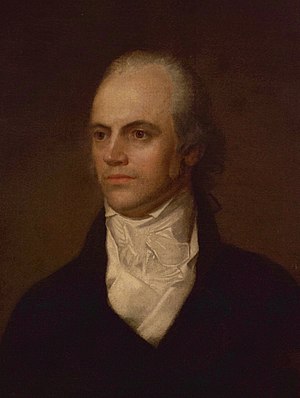“Never do today what you can as well do tomorrow, because something may occur to make you regret your premature action”
If Colonel Burr may have been surpassed in legal erudition, he
possessed other qualifications for successful practice at the bar
which were seldom equalled. He prepared his trials with an industry
and forethought that were most surprising. He spared no labour or
expense in attaining every piece of evidence that would be useful in
his attacks, or guard him against his antagonist. He was absolutely
indefatigable in the conduct of his suits. "He pursued (says a legal
friend) the opposite party with notices, and motions, and
applications, and appeals, and rearguments, never despairing himself,
nor allowing to his adversary confidence, nor comfort, nor repose.
Always vigilant and always urgent, until a proposition for compromise
or a negotiation between the parties ensued. 'Now move slow (he would
say); never negotiate in a hurry.' I remember a remark he made on this
subject, which appeared to be original and wise. There is a saying,
'Never put off till tomorrow what you can do to-day.' 'This is a
maxim,' said he, 'for sluggards. A better reading of the maxim
is--_Never do to-day what you can as well do to-morrow_; because
something may occur to make you regret your premature action.'"
I was struck, says the same friend, in his legal practice, with that
tendency to mystery which was so remarkable in his conduct in other
respects. He delighted in surprising his opponents, and in laying, as
it were, ambuscades for them. A suit, in which I was not counsel, but
which has since passed professionally under my observation, will
illustrate this point in his practice. It was an ejectment suit,
brought by him to recover a valuable tenement in the lower part of the
city, and in which it was supposed, by the able lawyers retained on
the part of the defendant, that the only question would, be on the
construction of the will. On the trial they were surprised to find the
whole force of the plainfiff's case brought against the authenticity
of an ancient deed, forming a link in their title, and of which, as it
had never, been questioned nor suspected, they had prepared merely
formal proof; and a verdict of the jury, obtained by a sort, of
_coup-de-main_, pronounced the deed a forgery.
